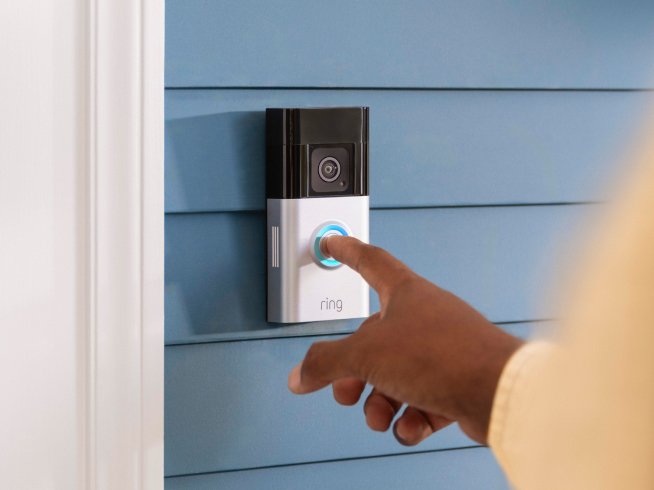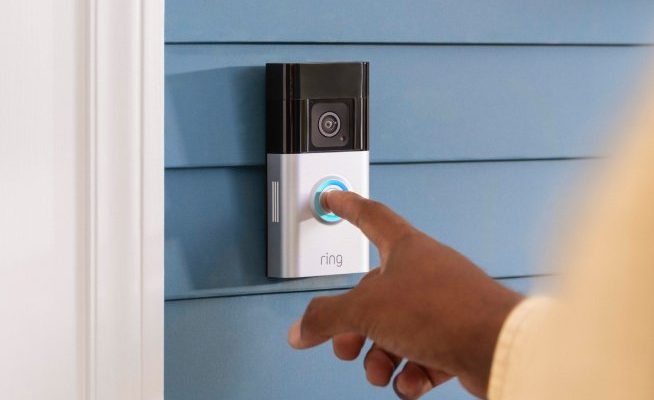
Honestly, nobody loves thinking about worst-case scenarios: dead batteries, a doorbell camera that suddenly won’t sync, or a keypad that refuses to pair. But these things happen, even to the best tech. The catch with Ring’s security systems—and smart home gear in general—is that while the basic warranty covers you for the first year, all bets are off after that unless you pay extra. So, is the extended warranty worth it for your Ring gear, or just a safety net you’ll never need? Let’s walk through how Ring warranties work, the real-life reasons you might (or might not) need extra protection, and what to think about before you buy.
How Ring’s Standard Warranty Works
Before you stress over the extended warranty, it’s important to know what you actually get for free. Ring offers a standard one-year limited warranty on their security systems and most of their accessories, including cameras, sensors, and that all-important keypad. For the first 12 months after you buy, Ring will repair or replace your device if there’s a manufacturing defect or it conks out under normal use.
Here’s the thing—this warranty covers a lot, but it’s not a magic shield against every problem. If your Ring doorbell won’t pair due to a hardware flaw, or your base station’s battery totally fails through no fault of your own, you’re probably covered. But if you drop your camera, the dog chews a sensor, or your system glitches because you tried a DIY reset that went sideways, the standard warranty won’t help. It also doesn’t cover normal wear and tear or battery replacements.
A lot of folks feel safe during that first year, but once those twelve months are up, you’re suddenly on your own. If you’ve ever had a gadget die a week out of warranty, you know how frustrating that can be. That’s usually when the “should I buy the extended warranty?” question starts to nag.
What Does the Ring Extended Warranty Cover?
So, what exactly are you getting if you spring for Ring’s extended warranty? It’s actually pretty simple: If you subscribe to a Ring Protect Plus or Protect Pro plan, your warranty isn’t limited to just one year—it’s extended for as long as your subscription is active. In other words, as long as you keep paying for their advanced monitoring features, your Ring security system and eligible devices stay under warranty.
This extended coverage mirrors the original one-year deal. That means if your system won’t sync, a sensor stops working, or your keypad develops a weird battery issue, Ring will repair or swap it out for free—even if you’ve had it for several years. The catch? You need to keep your Ring Protect plan active without any breaks, or you’ll lose that “forever warranty” and can’t get it back for already-purchased devices.
To sum it up:
- Extended warranty is tied to your subscription—cancel it, and the extension ends.
- It covers defects and normal use, just like the standard warranty.
- Accidental damage, lost devices, and normal battery wear still aren’t covered.
It’s a lot like a phone plan where insurance rides along as long as you keep paying the monthly bill. If you want that “set it and forget it” sense of security, the extended warranty can be reassuring.
Common Problems With Ring Security Systems
You might be wondering, “Okay, but how likely am I to even need this extra coverage?” Ring gear is generally reliable, but like any tech, it has its quirks. Let’s dig into a few real-world issues people run into—and whether an extended warranty would even help.
- Hardware failures: Sometimes a camera just dies, a sensor won’t pair, or the base station won’t hold a charge.
- Battery troubles: Batteries can lose life or refuse to charge after a while—especially in outdoor gear battling rain, cold, or heat.
- Sync and connection glitches: Devices might stop syncing with the app or each other, making troubleshooting tricky.
- Software issues: Updates can occasionally cause a device to act funky, but most software fixes aren’t a warranty matter.
Here’s the bottom line: If your Ring system fails due to a hardware or battery defect (and not just old age or user error), warranty coverage saves you the headache (and cost) of replacing things yourself. But, issues like accidental drops, code errors, or lost remotes? You’re still on your own—extended warranty or not.
Who Should Consider Ring’s Extended Warranty?
Let me explain who might actually find the extended warranty worth it. If you’re all about peace of mind or live in a home where security really matters, extra protection can feel like cheap insurance. It’s especially smart if you’ve invested in a full Ring setup, with doorbell cameras, window sensors, a keypad, motion detectors—the whole nine yards. The price of replacing even one big device could easily outweigh a year or two of the Ring Protect subscription.
On the flip side, if you’re only using a basic Ring doorbell or a couple of sensors, you might not get as much value out of the extended coverage. Sometimes, it’s cheaper just to replace a single device if it fails outside of that first year. Also, if you’re the type who upgrades frequently—always after the latest gear—the extended warranty might not even matter before you swap your system out for something new.
Think about your own setup:
- Heavy Ring user with lots of devices? Extended warranty is probably a smart call.
- Minimalist, just a doorbell or camera? You might not need it.
- Do you want the extra security of monitored alarms and video storage anyway? The extended warranty is a sweet bonus.
The Cost: Subscription vs. Standalone Warranty
Here’s where it gets a little interesting. Unlike some electronics brands, Ring doesn’t sell its extended warranty as a one-time, separate add-on. The only way to get it is through a paid Ring Protect plan. The Plus and Pro plans cover unlimited devices at your address, which is actually a solid deal for families or anyone with a big collection of Ring products.
Let’s break down the math a bit. As of now, Ring Protect Plus runs around $10/month (or $100/year), and Pro is a bit more. That gets you:
- Extended warranty coverage for every device on your Ring system
- Professional monitoring (great for emergencies)
- Video recording and storage
- Other features like code sharing and advanced notifications
If you were going to pay for monitoring or cloud storage anyway, treating the extended warranty like a freebie makes a lot of sense. But if you’re only interested in the warranty, paying for a monthly subscription just for that might not feel worth it—especially if you don’t use the system heavily.
Alternatives: Are There Other Options?
Some people ask, “Can I just buy a universal extended warranty or go with third-party coverage?” Generally, no—not for Ring systems. Because of how Ring integrates software, syncs devices, and relies on proprietary batteries and remotes, outside warranties tend to be more trouble than they’re worth.
There are a few exception cases, like if you buy Ring products through big-box retailers (think Best Buy or Amazon) and they offer an in-house extended warranty. Just read the fine print closely—those plans might not cover everything the Ring Protect plan does, especially when it comes to system-wide troubleshooting or code support.
Another alternative? Just budget for occasional replacements or repairs. Sometimes, setting aside a little “tech emergency fund” gives you the same peace of mind—especially if you’re handy with DIY troubleshooting or don’t mind resetting and pairing devices yourself as they age.
What Happens If You Don’t Get the Extended Warranty?
You might be curious what the real risks are if you pass on the extended warranty. Here’s what it looks like in practice. Once that first year is up, you’re responsible for any issues that pop up—whether it’s a dead battery, a sensor that won’t sync, or a keypad you can’t reset. Replacement parts are usually available, but you’ll pay out of pocket.
This isn’t the end of the world for everyone. Plenty of Ring users go for years without a single hardware problem. Others end up needing a new base station or camera just months after warranty ends, and it stings a little. Think about your risk tolerance here. If the thought of a $150 unplanned expense would ruin your week, extended coverage is basically buying yourself some breathing room.
You’re basically betting against bad luck. Sometimes it pays off, sometimes it doesn’t—but at least you know what you’re getting into.
Final Thoughts: Is the Extended Warranty for Ring Security Systems Worth It?
So, where does all this leave us? If you’re already paying for Ring Protect Plus or Pro to unlock video recordings, advanced code sharing, and other perks, the extended warranty is a huge bonus. It’s an easy way to keep your Ring security system running smoothly for years, especially if you’ve invested in lots of devices or have a complex setup.
But, if your Ring setup is minimal or you’re not interested in paying for monthly features, the cost of the extended warranty tied to a subscription might not feel justified. Sometimes, basic troubleshooting or the occasional replacement is really all you need. Either way, the key is knowing your own habits, budget, and appetite for risk.
At the end of the day, choosing an extended warranty for your Ring system comes down to whether you value peace of mind—or prefer to take your chances. Either path can make sense. The trick is picking the one that lets you sleep easy, knowing your security system will have your back when you need it most.
